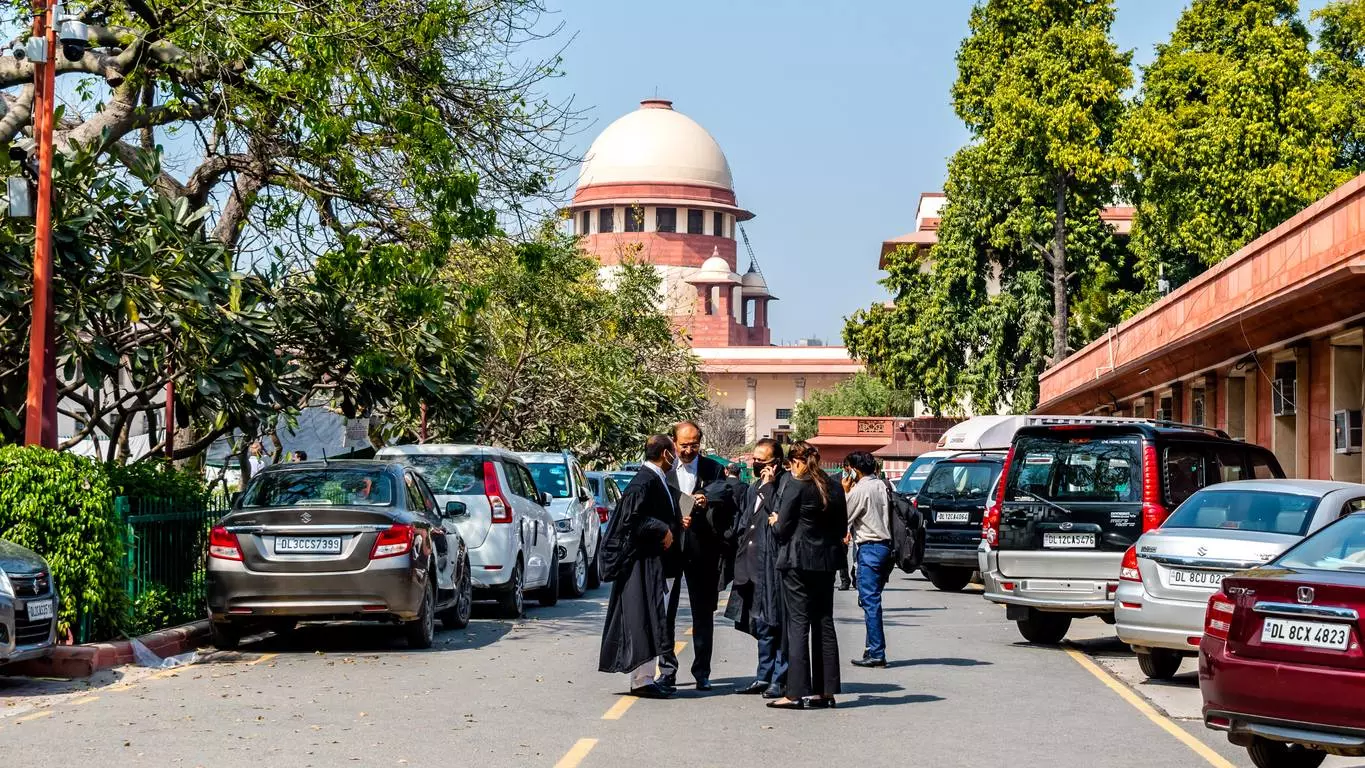
A bench consisting of Justices Vikram Nath and Sandeep Mehta made it clear that the chief secretaries had to appear before the court on November 3. File photo
Bihar SIR can be set aside if illegality is proven, says Supreme Court
The court is hearing pleas challenging the Election Commission's Special Intensive Revision and noted that illegality established later can be reversed

The Supreme Court on Tuesday (August 12) said that the results of the ongoing Special Intensive Revision (SIR) in Bihar can be set aside even if any illegality is established as late as September. The case is being heard by a bench of Justices Surya Kant and Joymalya Bagchi.
During the hearing, Justice Kant reiterated that the entire thing can be set aside even if illegality is established as late as September, reported Live Law.
The Supreme Court is hearing a bunch of pleas challenging the Special Intensive Revision (SIR) of electoral rolls in Bihar that is currently being conducted by the Election Commission (EC), ahead of the upcoming Assembly elections in the state.
The petitioners, which include the Association for Democratic Reforms (ADR), are arguing that the revision process lacks necessary safeguards and could lead to the disenfranchisement of voters.
Also Read: Opposition holds 'T-shirt protest' against SIR, 'vote chori' in Parliament premises
‘Trust deficit issue’
However, the bench also described the Bihar SIR row as "largely a trust deficit issue” as the Election Commission of India (ECI) claimed roughly 6.5 crore people of the total 7.9 crore voting population didn't have to file any documents for they or their parents featured in the 2003 electoral roll.
The top court questioned the petitioners’ argument that the Election Commission’s the EC’s June 24 decision of conducting the SIR would lead to the disenfranchisement 1 crore voters.
"If out of 7.9 crore voters, 7.24 crore voters responded to the SIR, it demolishes theory of one crore voters missing or disenfranchised," the bench told senior advocate Kapil Sibal, appearing for petitioner and RJD leader Manoj Jha, reported PTI.
Also Read: Kharge’s dinner proof SIR has given INDIA Bloc glue it needs to stick together
Agrees with EC on Aadhaar
The bench also agreed with the poll panel’s decision of not accepting Aadhaar and voter cards as conclusive proof of citizenship for the SIR exercise staying that it has to be supported by other documents.
Sibal argued that despite residents holding Aadhaar, ration and EPIC cards, officials refused to accept the documents.
"Is it your argument that people who have no documents but are in Bihar and therefore he should be considered as a voter of the state. That can be allowed. He has to show or submit some documents (sic)," the bench said.
Responding to Sibal’s submission that people were struggling to find birth certificates and other documents of their parents, Justice Kant said, "It is a very sweeping statement that in Bihar nobody has the documents. If this happens in Bihar, then what will happen in other parts of the country?"
Also Read: Parliament passes 8 Bills amid Opposition protests against SIR, 'voter fraud'
Petitioners question SIR timeline
During the hearing, the timeline for the completion of the exercise and the data of 65 lakh voters who were declared as dead or migrated or registered in other constituencies were questioned by senior advocate Abhishek Singhvi and advocate Prashant Bhushan.
Addressing the court in person, political activist Yogendra Yadav claimed that the design of SIR exercise was to delete the voters. He argued that instead of 7.9 crore voters, there was a total adult population of 8.18 crore.
"They (EC) were not able to find any individual whose name was added, and the booth-level officers visited house to house for deletion of names," Yadav said, calling it a case of "total disenfranchisement".
Also Read: ‘Vote chori’ protest: What does it show about INDIA bloc unity and EC?
‘12 people declared dead found alive’
Sibal during the hearing said that while in one constituency, contrary to the poll panel's claims, 12 people declared dead were found alive, in another instance, alive persons were declared dead.
Senior advocate Rakesh Dwivedi, appearing for the poll panel, said the exercise of such a nature was "bound to have some defects here and there at the draft stage" and to claim dead persons were declared alive and alive as dead could always be corrected as it was only a draft roll. The hearing would resume on Wednesday.
(With agency inputs)

